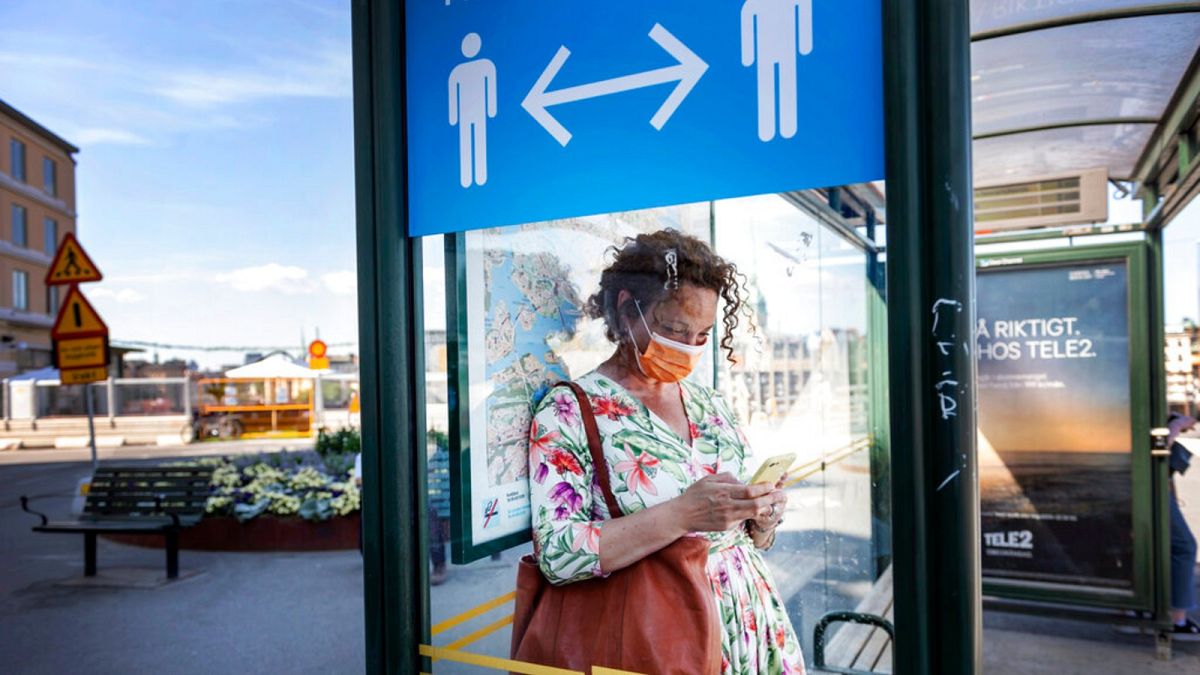Infections, hospitalisations and deaths have dropped, but immunity remains a puzzle.
Sweden famously took a totally different approach to its Nordic neighbours in trying to contain the spread of the novel coronavirus.
The Swedish strategy allowed people to keep living largely as normal. Stores and restaurants remained open – so too did many schools.
With a COVID-19 death toll of 5,700, Sweden’s mortality rate from the disease is now around a quarter higher than that of the United States, when adjusted for population size.
However, authorities insist that the number of deaths has considerably dropped in recent weeks.
"We've actually seen a clearly declining trend in the number of patients in intensive care and also in the number of deaths since the middle of April," said Anna Mia Ekström, clinical professor of global infectious disease epidemiology at Stockholm’s Karolinksa Institute.
Earlier in the month, the number of coronavirus patients in a hospital in the capital had fallen below 100 for the first time since early March, according to The Local.
"Now we see one or two deaths a day and very few persons admitted to ICU (intensive care units)," said Jan Albert, a professor of infectious disease control at the Karolinska Institute.
"We are much better off now than we were in April," he told Euronews.
His colleague Ekström said that with the summer holidays, fewer people are at work or in public transport, and they’re spending more time outdoors, so the virus is finding fewer opportunities to spread.
So how close is Sweden to possibly reaching herd immunity?
We don’t know at this point. Scientists are still trying to figure out whether immunity from the new coronavirus can even be reached – and for how long.
Ekström noted that the reproduction number of the epidemic – or R number, which measures the average number of people that one infected person will pass the virus on to – has now fallen in Sweden to around 0.6, meaning transmission is declining.
The number of people with antibodies against the new coronavirus, meanwhile, is increasing.
Data published by Sweden’s public health agency in June showed that about 10 per cent of people in Stockholm – the nation's worst affected area – had developed antibodies to COVID-19, more than anywhere else in the country.
A recent study from the Karolinska Institute also suggests that people testing negative for coronavirus antibodies may still have some immunity, through specific T-cells that identify and destroy infected cells.
Still, whether Sweden is on track to greater immunity to the new coronavirus than other countries remains one big question mark at this stage, says the Karolinska Institute's Albert.
"There are so many unknown factors about how many actually develop antibodies and other types of immune responses after going through the disease, and how many will be required to have had the disease in order to see herd immunity," he explained.
"We know that we've had more cases in Sweden than for instance in Norway and Denmark and Finland, our neighbouring countries, many more. But whether that means that we are on our way to herd immunity is a big unknown."
For now, Sweden’s light-touch approach to tackling the coronavirus pandemic has drawn attention and criticism from around the world.
It has also weighed on the popularity ratings of Sweden's prime minister, Stefan Lofven, who announced last month an inquiry into the government's handling of the coronavirus outbreak.
